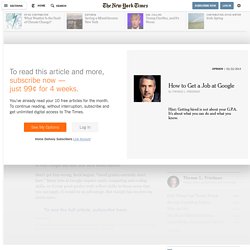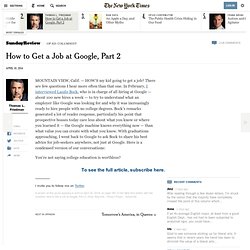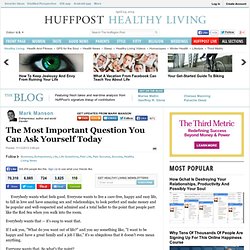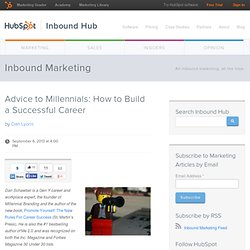

Daring Greatly to Unlock Your Creativity with Brené Brown. 12 Household Toxins You Should Banish From Your Home. How to Get a Job at Google. MOUNTAIN VIEW, Calif. — LAST June, in an interview with Adam Bryant of The Times, Laszlo Bock, the senior vice president of people operations for Google — i.e., the guy in charge of hiring for one of the world’s most successful companies — noted that Google had determined that “G.P.A.’s are worthless as a criteria for hiring, and test scores are worthless. ...

We found that they don’t predict anything.” He also noted that the “proportion of people without any college education at Google has increased over time” — now as high as 14 percent on some teams. At a time when many people are asking, “How’s my kid gonna get a job?” I thought it would be useful to visit Google and hear how Bock would answer. Don’t get him wrong, Bock begins, “Good grades certainly don’t hurt.”
How to Get a Job at Google, Part 2. MOUNTAIN VIEW, Calif. — HOW’S my kid going to get a job?

There are few questions I hear more often than that one. In February, I interviewed Laszlo Bock, who is in charge of all hiring at Google — about 100 new hires a week — to try to understand what an employer like Google was looking for and why it was increasingly ready to hire people with no college degrees. Bock’s remarks generated a lot of reader response, particularly his point that prospective bosses today care less about what you know or where you learned it — the Google machine knows everything now — than what value you can create with what you know. With graduations approaching, I went back to Google to ask Bock to share his best advice for job-seekers anywhere, not just at Google. Here is a condensed version of our conversations: You’re not saying college education is worthless?
“My belief is not that one shouldn’t go to college,” said Bock. What are those traits? A lot of work, he added, is no longer tied to location. THIS IS WATER. The Most Important Question You Can Ask Yourself Today. Everybody wants what feels good.

Everyone wants to live a care-free, happy and easy life, to fall in love and have amazing sex and relationships, to look perfect and make money and be popular and well-respected and admired and a total baller to the point that people part like the Red Sea when you walk into the room. Everybody wants that -- it's easy to want that. If I ask you, "What do you want out of life? " and you say something like, "I want to be happy and have a great family and a job I like," it's so ubiquitous that it doesn't even mean anything. Everyone wants that. What's more interesting to me is what pain do you want? Everybody wants to have an amazing job and financial independence -- but not everyone is willing to suffer through 60-hour work weeks, long commutes, obnoxious paperwork, to navigate arbitrary corporate hierarchies and the blasé confines of an infinite cubicle hell.
Because happiness requires struggle. People want an amazing physique. That's only partly true. The Time You Have (In JellyBeans) Advice to Millennials: How to Build a Successful Career. Dan Schawbel is a Gen Y career and workplace expert, the founder of Millennial Branding and the author of the new book, Promote Yourself: The New Rules For Career Success (St.

Martin’s Press). He is also the #1 bestselling author of Me 2.0 and was recognized on both the Inc. Magazine and Forbes Magazine 30 Under 30 lists. What prompted you to write Promote Yourself? Right after my first book came out, I realized two things. What’s your best advice to someone just starting out on a career? First, you really need to get as many experiences as possible as early as you can.
Second, build your online presence, maintain it and grow it. Third, always have a side project going. Should young people start their own company or go to work for someone else? Most people will naturally work for someone else because working for yourself is extremely hard and stressful. Another trend I’m paying close attention to is the rise of the independent workers. Millennials are collaborative.